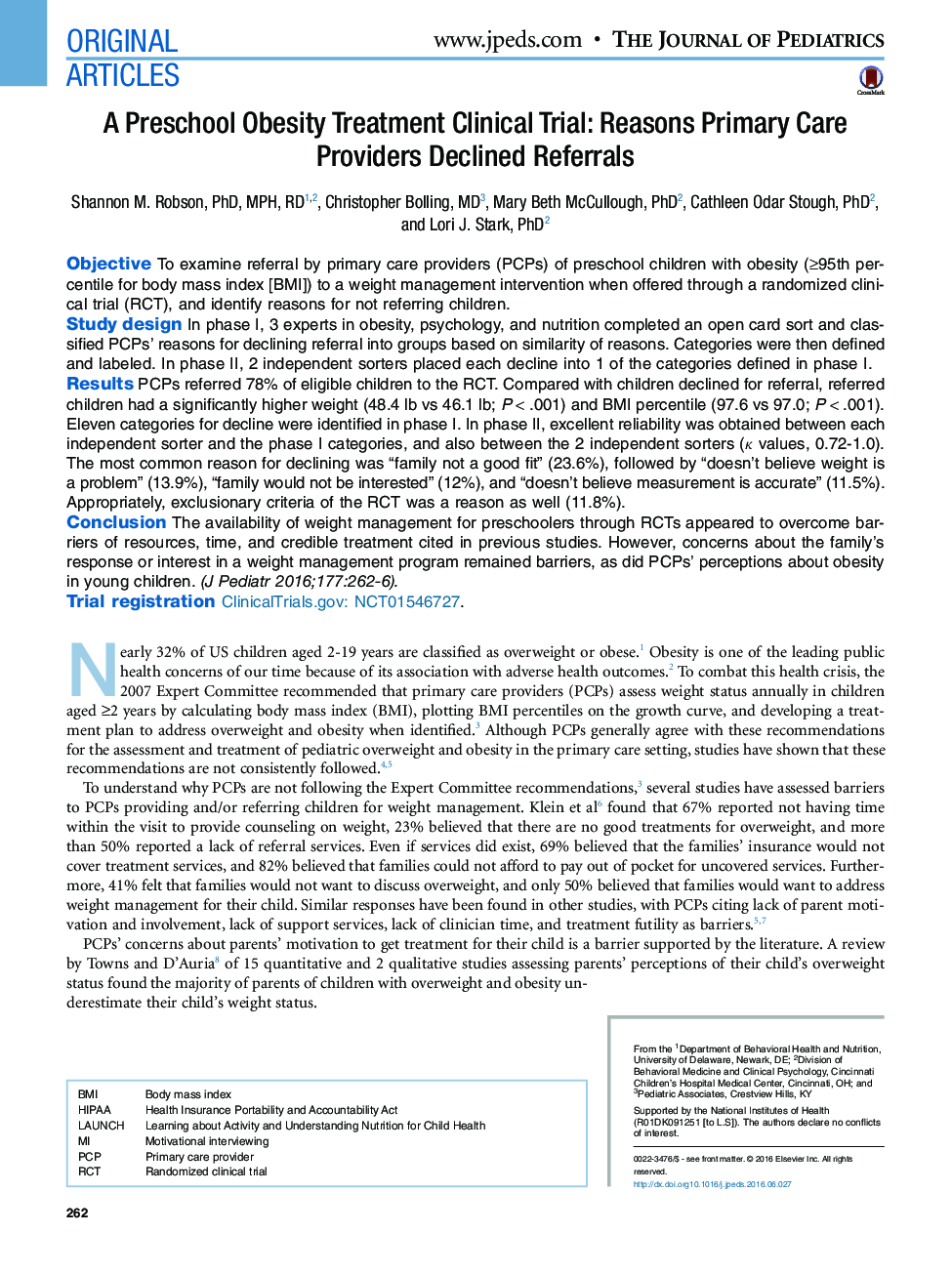| Article ID | Journal | Published Year | Pages | File Type |
|---|---|---|---|---|
| 6218753 | The Journal of Pediatrics | 2016 | 6 Pages |
ObjectiveTo examine referral by primary care providers (PCPs) of preschool children with obesity (â¥95th percentile for body mass index [BMI]) to a weight management intervention when offered through a randomized clinical trial (RCT), and identify reasons for not referring children.Study designIn phase I, 3 experts in obesity, psychology, and nutrition completed an open card sort and classified PCPs' reasons for declining referral into groups based on similarity of reasons. Categories were then defined and labeled. In phase II, 2 independent sorters placed each decline into 1 of the categories defined in phase I.ResultsPCPs referred 78% of eligible children to the RCT. Compared with children declined for referral, referred children had a significantly higher weight (48.4 lb vs 46.1âlb; Pâ<â.001) and BMI percentile (97.6 vs 97.0; Pâ<â.001). Eleven categories for decline were identified in phase I. In phase II, excellent reliability was obtained between each independent sorter and the phase I categories, and also between the 2 independent sorters (κ values, 0.72-1.0). The most common reason for declining was “family not a good fit” (23.6%), followed by “doesn't believe weight is a problem” (13.9%), “family would not be interested” (12%), and “doesn't believe measurement is accurate” (11.5%). Appropriately, exclusionary criteria of the RCT was a reason as well (11.8%).ConclusionThe availability of weight management for preschoolers through RCTs appeared to overcome barriers of resources, time, and credible treatment cited in previous studies. However, concerns about the family's response or interest in a weight management program remained barriers, as did PCPs' perceptions about obesity in young children.Trial registrationClinicalTrials.gov: NCT01546727.
